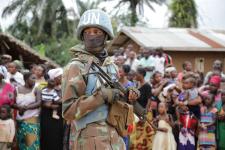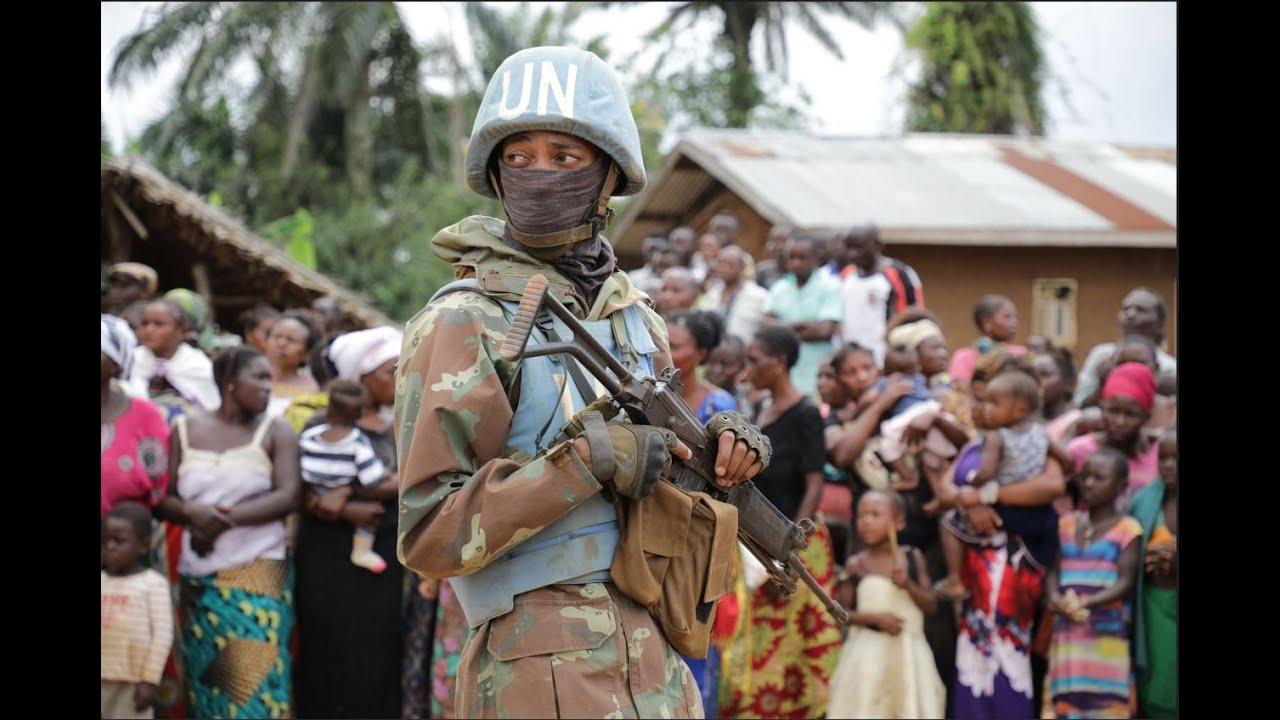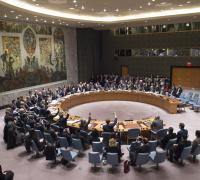Livestreaming
What does the future of peacekeeping hold?

Watch the livestreaming here
The formal closure of the UN peacekeeping mission in Mali on the last day of 2023 is igniting critical discussions at UN headquarters in New York regarding the future of peacekeeping, especially in Africa. The development highlights a pivotal moment for the UN to explore and potentially finance alternatives to traditional blue helmet operations. The evolving landscape of conflicts in Africa, where most missions have been deployed, characterised by complex political dynamics, asymmetric warfare, and the involvement of various non-state actors, has posed significant challenges to the principles of peacekeeping. Mali, but also the Central African Republic and Congo have all shown the limitations of this form of intervention. Combined with a decreasing belief in the liberal world order that in large parts has driven peacekeeping ideologically, the need to adapt and evaluate peacekeeping strategies is urgent.
This could mean a greater reliance on regional and local peacekeeping forces, considerably smaller and shorter interventions, enhanced support for political solutions, and investment in technology-driven intelligence and surveillance methods. These changes go beyond merely replacing traditional peacekeeping principles, which have primarily focused on maintaining ceasefires and stabilising post-conflict scenarios, to a profound re-evaluation of the ideological underpinnings that have historically driven these missions. They raise fundamental questions about the future of peacekeeping as we know it, heralding a new era where the very concept and methods of peacekeeping must be reimagined to better suit international engagement in the ever-evolving dynamics of global conflict.
This seminar will bring together some of the key voices in debating the future of peacekeeping.
Marsha Henry is Professor at the Queen’s University, Belfast, and a Visiting Professor at the London School of Economics Her research is concerned with the gendered and racialised politics of violence; militarisation; global south development; international aid and intervention; and conflict, peace and security. In addition, Marsha has published on the challenges of decolonial, intersectional, and feminist qualitative approaches, methodologies and fieldwork. She is the author of several books, the latest of which is: The End of Peacekeeping: Gender, Race and the Martial Politics of Intervention (Penn Press). Marsha is Associate Editor of Security Dialogue, has developed a range of courses on gender, peace and security, and has advised a number of national governments on gender and diversity.
Nina Wilén is Research Director for the Africa Programme at the Egmont Institute for International Relations, Belgium, and Associate Professor at the Department of Political Science at Lund University, Sweden. Her research focuses on Security Force Assistance (SFA), Security Sector Reform (SSR), the politics of peacekeeping operations, and gender, all with a focus on the military institution. Nina regularly contributes to policy making and strategy writing and was appointed by the Belgian Prime Minister’s Office to contribute to Belgium’s first National Security Strategy. She is the author of the book Justifying Interventions: (De) Stabilizing Sovereignty in Liberia, Burundi and the Congo (Palgrave Macmillan), and African Peacekeeping (Cambridge University Press, 2022) with Jonathan Fisher.
Jonathan Fisher is Professor of Global Security at the University of Birmingham and a Research Fellow in the Centre for Gender and Africa Studies at the University of the Free State. His research focuses on the intersection of authoritarianism and (in)security and he has a particular interest in East Africa. He is the co-editor of African Affairs and author (with Nina Wilén) of African Peacekeeping (Cambridge University Press, 2022) and East Africa after Liberation: Conflict, Security and the State since the 1980s (Cambridge University Press, 2020).
Andrew Tchie is Senior Research Fellow at the Norwegian Institute of International Affairs (NUPI) and manager of the Training for Peace Programme at NUPI. He is the Editor-in-Chief of the African Solutions (AfSol) Journal at the Institute for Peace and Security Studies. He is Visiting Professor at the University of Buckingham, Visiting Senior Fellow at King’s College, London, and Associate Fellow at the Royal United Services Institute (RUSI). His research focuses on African-led peace support operations, UN peace operations, stabilisation in Africa, and African armies. He formerly worked for the UN mission in South Sudan, Sudan and UNDP in Nepal, as well as RUSI and the International Institute for Strategic Studies.
John Karlsrud is Research Professor at the Norwegian Institute of International Affairs (NUPI). He works on peacekeeping, humanitarian action and global governance more broadly. He is the co-Principal Investigator (PI) of ADHOCISM, a project examining the role of ad hoc coalitions in global governance, the PI of UN Peace Operations Programme (financed by the Norwegian Ministry of Foreign Affairs), and the PI of NAVIGATOR, a Horizon Europe project exploring changes in global cooperation across a range of issues.
Peter Albrecht is Senior Researcher at Danish Institute for International Studies (DIIS).
Programme
14.00-14.10 Introduction, Peter Albrecht
14.10-14.40 The end of peacekeeping, Marsha Henry
14.40-15.10 Regional stabilisation forces in Africa: The death of multilateral peacekeeping?, Nina Wilén and Jonathan Fisher
15.10-15.40 Generation three and a half peacekeeping: Understanding African-led peace support operations, Andrew Tchie
15.40-15.55 Coffee break
15.55-16.30 Ad hoc coalitions and the future of peacekeeping, John Karlsrud
16.30-17.00 Q&A
The seminar was held and recorded on 19 February 2024, 14.00-17.00 in DIIS Auditorium.
Sign up
DIIS Experts



